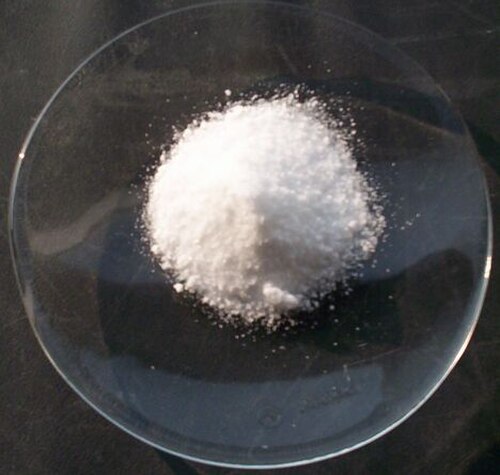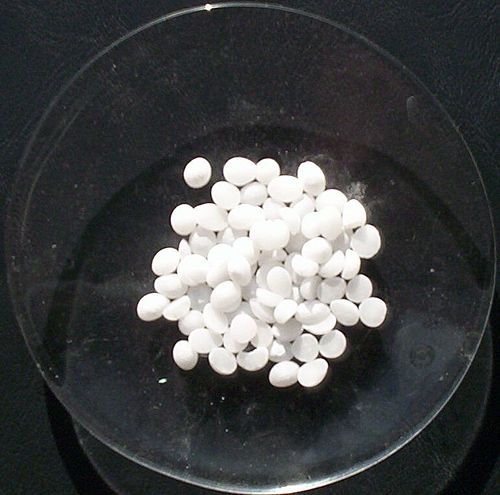Potashnoun
the water-soluble part of the ash formed by burning plant material; used for making soap, glass and as a fertilizer
Potashnoun
(chemistry) an impure form of potassium carbonate (K2CO3) mixed with other potassium salts
Potashnoun
in the names of compounds of the form "... of potash", potassium (for example, "permanganate of potash" = potassium permanganate)
Potashverb
To treat with potassium.
Potashnoun
The hydroxide of potassium hydrate, a hard white brittle substance, KOH, having strong caustic and alkaline properties; - hence called also caustic potash.
Potashnoun
a potassium compound often used in agriculture and industry
Potashnoun
an alkaline potassium compound, especially potassium carbonate or hydroxide.
Potash
Potash () includes various mined and manufactured salts that contain potassium in water-soluble form. The name derives from pot ash, which refers to plant ashes or wood ash soaked in water in a pot, which was the primary means of manufacturing the product before the Industrial Era.
Potassiumnoun
A soft, waxy, silvery reactive metal that is never found unbound in nature; an element (symbol K) with an atomic number of 19 and atomic weight of 39.0983. The symbol is derived from the Latin kalium.
Potassiumnoun
(countable) A single atom of this element.
Potassiumnoun
An Alkali element, occurring abundantly but always combined, as in the chloride, sulphate, carbonate, or silicate, in the minerals sylvite, kainite, orthoclase, muscovite, etc. Atomic weight 39.0. Symbol K (Kalium).
Potassiumnoun
a light soft silver-white metallic element of the alkali metal group; oxidizes rapidly in air and reacts violently with water; is abundant in nature in combined forms occurring in sea water and in carnallite and kainite and sylvite
Potassium
Potassium is a chemical element with the symbol K (from Neo-Latin kalium) and atomic number 19. Potassium is a silvery-white metal that is soft enough to be cut with a knife with little force.





















